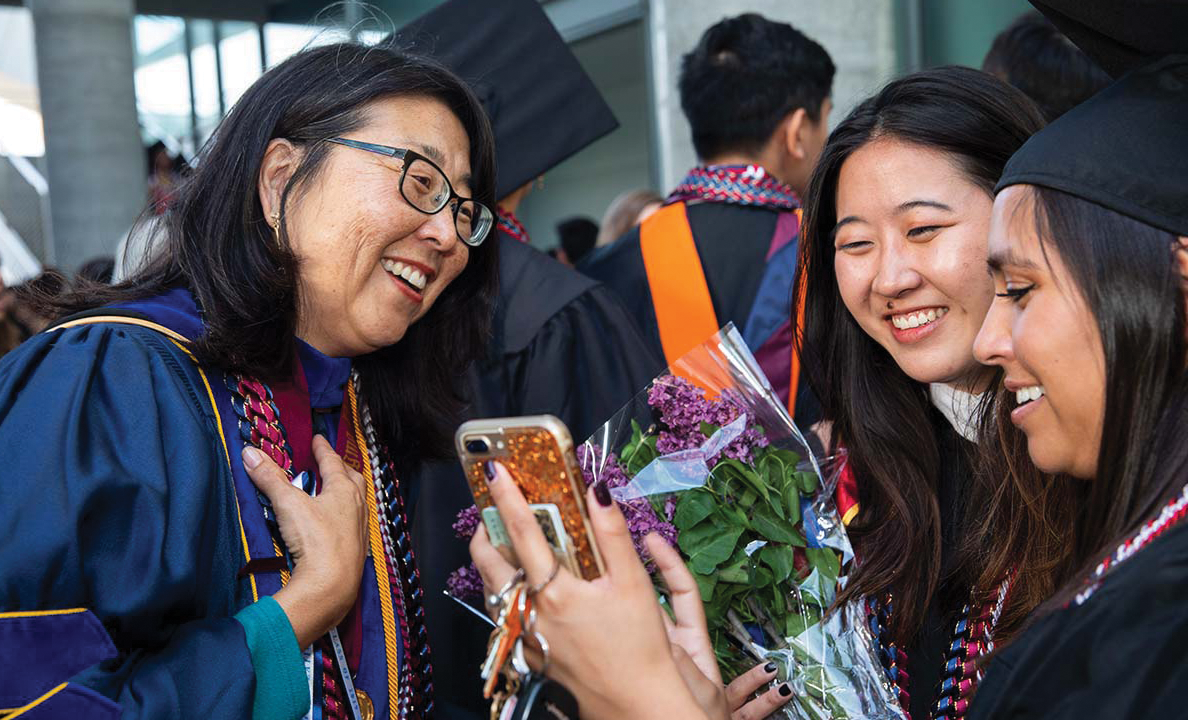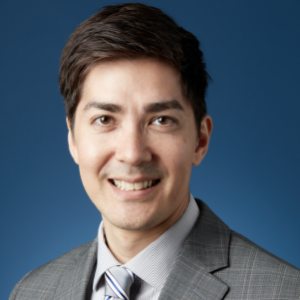
It is my pleasure as Faculty Co-President of the Asian American Pacific Islander Faculty and Staff Association to highlight as part of the AAPI Heritage Month Interview series a fellow AAPIFSA member, colleague, and friend, who has been instrumental in supporting our community. Professor Jennifer Abe, Ph.D., has kindly shared with me some reflections on her own personal history and heritage, her contributions to LMU as a teacher-scholar, and her thoughts on the importance of solidarity and deep listening as we think about the future of LMU’s API community.
Jennifer Shimako Abe, Ph.D., is a professor of psychological science at Loyola Marymount University and a senior research associate at LMU’s Psychology Applied Research Center (PARC). Her research broadly addresses topics related to mental health service delivery for ethnically diverse populations, including help-seeking, disparities, spirituality, cultural humility, and community-defined evidence practices, topics that are reflected in her teaching, such as her course “Liberation Psychologies.” Professor Abe has served in various leadership capacities at LMU during her years at LMU, including terms as associate dean (BCLA, 2005-10) and the founding co-director for the Casa de la Mateada program (Córdoba, Argentina, 2013-18). Most recently, Professor Abe served as vice president for DEI (2019-21), formerly called Intercultural Affairs, and her leadership during this transitional period helped to foreground equity and equity-mindedness, diversity, and inclusion as the core values that define who we are as an institution. Professor Abe’s deep commitment to the intersections of culture, spirituality, and justice is evident in her research, teaching, and service, and reflected in the conversation below.
Eric Haruki Swanson: Can you please tell us about yourself and the trajectory of your career prior to your arrival at LMU?
Jennifer Shimako Abe: I had just finished my doctorate in clinical psychology at UCLA and was directing a project that was funded to increase the university’s engagement and partnership with communities in L.A., post-1992 L.A. riots. The violence against Rodney King and subsequent fallout in L.A. left me unsure about whether I wanted to go into academia and I also questioned my entire psychological training. In my clinical work, I felt that I was helping to treat individual wounds left by societal racism and oppression without helping to address the societal root causes of this damage. That did not sit well with me. Nonetheless, I responded to an invitation to apply to LMU, I fell hard for the school and my department, and joined the university in 1994.
EHS: In light of AAPI Heritage Month, I would like to invite you to share some thoughts on the impact your heritage or background may have had in your career choice/profession as a professor of psychology.
JSA: At UCLA, I was fortunate to work with Professors Stanley Sue, David Takeuchi, and Nolan Zane, who established the National Center on Asian American Mental Health while I was there. So, I ended up studying Asian American mental health issues in graduate school, even though that was not my original plan. I got lucky and was in the right place with the right people to get this training.
EHS: I’m particularly interested in hearing about your work on mental health service delivery for ethnically diverse populations, and your interest in highlighting the intersections of culture, spirituality, and justice, as both reflected in your research and teaching since coming to LMU.
JSA: Asian Americans represent highly diverse groups of people with different languages, cultures, and values. At the same time, one thing different Asian American groups tend to have in common is that they have extremely low rates of “help-seeking” for mental health services until their symptoms are really severe, especially for first-generation immigrants. That is a lot of suffering. I wondered if this reluctance to seek out care was all about the stigma, and/or if they got help from other sectors of care for their psychological distress, like ministers, priests, cultural healers, and medical doctors instead of psychologists. But I really started connecting mental health issues with broader social – and socialization – issues when I helped organize a BCLA Bellarmine Forum (2003) on “The Color of God: Culture, Spirituality, and Justice.” The speakers, performances, and art installations really opened my eyes to see these issues from a richer, interdisciplinary perspective.
EHS: You completed your two-year term as vice president for Intercultural Affairs (DEI) in December 2021. Significantly, your time as vice president occurred during one of the tumultuous moments in the history of the university. We collectively witnessed the murder of George Floyd, experienced the COVID-19 pandemic, and whether directly or indirectly, experienced the rise of anti-Asian sentiment and violence. Can you tell us about the challenges during those years, as well as reflections on your leadership role as we all navigated through those difficult times?
JSA: I learned the importance of community, solidarity, deep listening, and love in order to create pathways and conditions for people to be able to engage in meaningful reflection and action. Change is not easy, and reckoning with injustice is even harder, but we cannot step away from this critical work. These crises made us keenly aware of what is most important in our lives as members of a community — respecting each other’s full humanity and dignity, acting with integrity, and holding ourselves accountable for our personal and institutional actions, for the sake of justice and healing.
EHS: I understand that you were also responsible for launching LMU’s Anti-Racism Project. Can you please tell us about this initiative and perhaps how your own heritage as Asian American helped to inform that work for the university?
JSA: I am a Nisei, a second-generation Japanese American woman whose life and work have been deeply impacted by two men of color, one black and one brown. It was because of the brutality of the violence against Rodney King in 1992 that I became deeply disaffected with my training as a psychologist. I felt that our psychological interventions to alleviate suffering had to be more than individual, they also needed to contribute to transforming society so that we could address the root causes of injustice, violence, and suffering. When I finally discovered the life and work of Ignacio Martin-Baró, a Jesuit and psychologist, who was unjustly murdered in El Salvador in 1989, I was transformed; he founded “liberation psychology” a field that insists upon connecting psychological well-being at an individual level to societal transformation towards justice. Healing is not just personal, but institutional, cultural, and communal. This perspective gave me what I had always felt was missing in my field. So, for LMU’s efforts to fight systemic oppression and racism, I felt we had to create opportunities for education, awareness, and action at multiple levels, as individuals, as institutional units, and as an entire university community. My desire to work collaboratively, and be deeply connected to our community, was also resonant and consistent with my socialization as an Asian American.
EHS: Do you have anything else you would like to add?
JSA: Thank you for the opportunity to reflect on these matters as part of AAPI Heritage Month!
EHS: Thank you so much for your time today and for all the work you continue to do for LMU.




